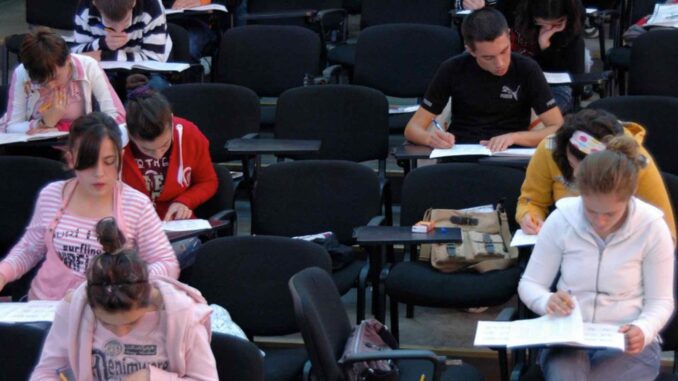
For Yvonne Williams, head of English and drama at a school in the south of England, writing in TES, the answer is a resounding “yes” as she shows in her discussion of the impact of the tests for the English GCSE. Williams cites a number of problems that she links to the revised GCSE and the associated tests and observes that the latest round of reforms have made English less attractive for both students and teachers.
Among the problems noted are the lack of inspiring literature and the failure to include readings that would appeal to students of lower achievement. Williams also observes that the learning path for English is less directly upward and more likely to include ups and downs akin to traveling through a mountain range. This has not deterred the testing community as they have transformed aspects of English study such as essay writing into a series of tick-list exercises in which student products are oriented to satisfying a set of check boxes.
The examples developed by Williams are fine illustrations of the unintended consequences set in motion by testing policies and practices. In an effort to elevate the study of English, the tests for the English GCSE seem to have resulted in reducing both rigor and interest. The solution to this and similar problems will require more than the approaches promulgated around the world by the standards and testing movement.


Be the first to comment